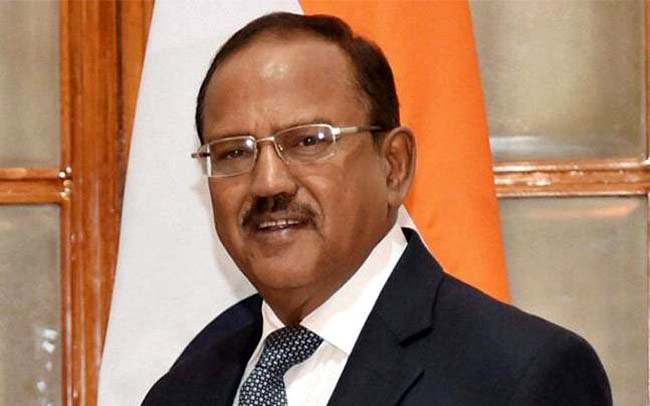New Delhi, June 20:
Four months after India and Pakistan decided to adhere to the ceasefire pact along the Line of Control (LoC), National Security Advisor Ajit Doval is likely to be in the same room as his Pakistan counterpart Moeed Yusuf in Dushanbe next week.
They will be participating in a meeting of NSAs of the Shanghai Cooperation Organisation (SCO) in the Tajikistan capital. Doval will be joining the meeting “in-person” on June 23-24, unlike the NSA-level virtual meeting of the SCO countries last September.
The meeting is likely to be attended by Afghanistan’s NSA Hamdullah Mohib, Russian NSA Nikolai Patrushev and their counterparts from China, Kazakhstan, Kyrgyzstan, Tajikistan and Uzbekistan.
Given the fluid situation in Afghanistan and the fragile peace between India and Pakistan holding for the last four months, Doval’s participation and his bilateral meetings on the sidelines will be key, sources said, adding that no meeting has been planned “so far” with his Pakistan counterpart.
India and Pakistan have been holding back-channel talks for the last few months, with Doval leading the Indian diplomatic initiative with Pakistan’s civilian-military leadership. Doval was said to have met Yusuf and ISI chief Lt Gen Faiz Hameed in a third country, and had also kept communication channels open with Pakistan Army chief Gen Qamar Javed Bajwa.
While there has been peace on the LoC since the February 25 announcement of adherence to the ceasefire pact, the last SCO meeting between the NSAs was a stormy affair.
At that time – this was mid-September last year — there was a face-off over a map that showed Jammu and Kashmir as Pakistani territory, and Doval left the meeting “in protest”.
The map was being used as a backdrop for the virtual meeting by Yusuf, then Special Assistant on National Security to Pakistan Prime Minister Imran Khan.
At that meeting, India had strong objections to the “illegal map” even as the Russian side had tried to persuade Pakistan against its use.
But the rancour now appears to be in the past. The two sides have looked at the situation pragmatically, and the two NSAs have been in communication over the last few months to bring some sort of normalcy to the relationship.
In recent months, Pakistan’s military leadership has been suggesting peace with India.
Pakistan Army chief General Qamar Javed Bajwa said in April that a stable relationship between India and Pakistan is key to unlocking the potential of South and Central Asia by ensuring connectivity between East and West Asia.
“We feel it is time to bury the past and move forward,” he had said, adding that the onus for meaningful dialogue rests with India.
Imran Khan said India would have to take the first step for improving bilateral relations by addressing the Kashmir issue.
The thaw since February has led to the Indus water talks, issuing of sports visas and diplomatic assignment visas.
While the presence of Indian and Pakistan NSAs “in the same room” is significant, what will be important will be the evolving situation in Afghanistan where the Taliban is on the rise again. New Delhi is worried and Foreign Secretary Harsh Vardhan Shringla said Friday that the Taliban’s relentless pursuit of power through violence has created an uncertain environment in Afghanistan and the situation in the country is “fluid” at this point.
With India stepping up its diplomatic activities in the Afghanistan peace process as the US prepares for the withdrawal of troops, Pakistan Foreign minister Shah Mahmood Qureshi has said that at times it feels that New Delhi’s presence in Afghanistan is perhaps “larger than it ought to be”.
In March, External Affairs Minister S Jaishankar and Qureshi had attended the ministerial conference of the ‘Heart of Asia’ — on Afghanistan —in Dushanbe. But no meeting took place between the two ministers.





